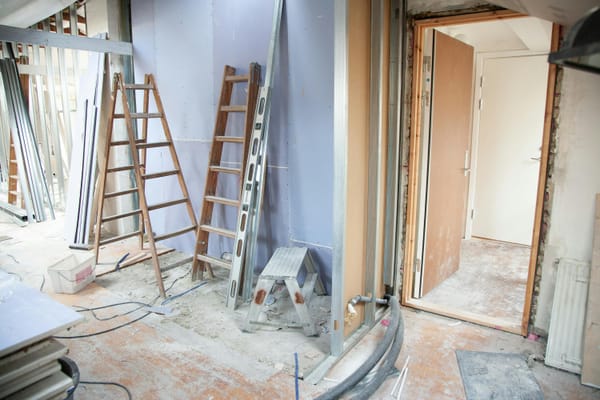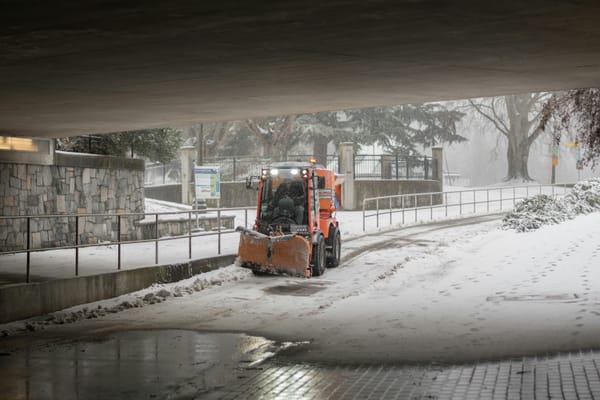The Risks of Hiring Unlicensed Contractors: What Homeowners Need to Know

Introduction: When Cutting Corners Comes Back to Bite
You’re ready to remodel your kitchen or fix that leaky roof. A contractor offers a deal that seems too good to pass up — maybe even says you can “skip the permit” to save time and money.
But here’s the catch:
They’re not licensed.
What may seem like a smart, budget-friendly move upfront can turn into a financial and legal nightmare. From faulty work to denied insurance claims, hiring an unlicensed contractor can expose you to serious — and avoidable — risks.
This article breaks down why licensure matters, what’s at stake when it’s missing, and how homeowners can protect themselves by choosing verified professionals.
What Does It Mean to Be “Licensed”?
A licensed contractor has met state or local regulatory requirements to legally perform work in specific trades. That means they’ve:
- Passed required exams
- Met minimum experience thresholds
- Filed business documentation
- Carried liability and/or workers’ comp insurance
- Agreed to comply with safety and labor regulations
Licensing is more than paperwork — it’s a form of consumer protection.
7 Major Risks of Hiring an Unlicensed Contractor
🚩 1. No Legal Recourse if Things Go Wrong
If your unlicensed contractor:
- Damages your home
- Fails to finish the job
- Disappears with your deposit
…you’ll have limited legal options. In many states, unlicensed contractors cannot legally enforce contracts — but neither can you recover damages as easily.
You may end up paying twice: once for the bad job, and again for the repair.
🚩 2. Homeowners May Be Held Liable for Injuries
If a worker is injured on your property and the contractor lacks proper insurance, you could be held financially responsible.
This can include:
- Medical bills
- Lost wages
- Lawsuits
Licensed contractors are generally required to carry workers’ comp and general liability insurance — unlicensed ones are not.
🚩 3. Work May Not Be Up to Code
Unlicensed contractors often:
- Skip pulling permits
- Ignore local codes
- Cut corners to save time
As a result, you could end up with:
- Unsafe electrical or plumbing systems
- Structural problems
- Code violations that stop resale or refinancing
You might even be forced to tear out and redo work — all at your own expense.
🚩 4. Your Insurance Policy May Deny Claims
If damage occurs due to substandard work — a fire, flood, or collapse — and the work was done by an unlicensed individual:
- Your homeowners insurance may deny your claim
- You could be liable for tens of thousands in repairs
Insurance companies aren’t in the business of covering illegal or undocumented activity.
🚩 5. Permits May Be Invalid or Rejected
Many building departments won’t issue permits to unlicensed individuals. If you bypass the process and get caught:
- You may face fines or stop-work orders
- Your entire project may be delayed or shut down
- You could be forced to pay penalties or re-do the project with a licensed pro
🚩 6. You May Lose Value When Selling Your Home
If you’ve had significant work done — like a kitchen remodel or addition — and can’t show it was done by licensed professionals:
- Appraisers may downgrade your home value
- Buyers may walk away or demand credits
- It could delay or kill a sale
Realtors and inspectors often flag unpermitted or undocumented work during escrow.
🚩 7. Unlicensed Contractors Can Disappear Easily
With no formal registration, unlicensed operators can:
- Change their business name frequently
- Avoid accountability
- Operate under the radar
If you try to contact them post-job for fixes, refunds, or warranty support — they’re gone.
How to Tell If a Contractor Is Licensed
Ask for:
- State license number
- Proof of insurance
- Business name and registration
- Website or verified third-party listing (like Prime Buyer’s Report)
Then:
- Look up their license online (most states have searchable databases)
- Verify the license is active and matches the business name
- Check for complaints or disciplinary actions
Why Homeowners Sometimes Hire Unlicensed Contractors Anyway
Let’s be honest — it’s usually about price or speed.
But what feels “cheaper” upfront often ends up costing:
- More time
- More money
- More stress
It’s like buying a knockoff parachute because it’s 30% cheaper. Is that a gamble worth taking?
Safer Alternatives: How to Get the Job Done Right
- Use a Verified Contractor Directory
Sites like Prime Buyer’s Report only list contractors who are:- Licensed and insured
- Complaint-screened
- Interviewed for customer satisfaction
- Local and legally operating
- Ask for Multiple Quotes from Licensed Pros
A fair quote doesn’t have to be the cheapest — it needs to be clear, documented, and backed by credentials. - Set Clear Expectations in a Written Contract
Include payment terms, timelines, scope of work, and a clause stating that all work must comply with local code. - Check Reviews, But Verify Credentials
Reviews are helpful — but they’re not a substitute for legal documentation and real-world experience.
Conclusion: Licensure Isn’t a Form — It’s a Safeguard
You wouldn’t trust an unlicensed surgeon, and you shouldn’t trust an unlicensed contractor either.
When hiring someone to work on your home:
- Think long-term
- Vet them thoroughly
- Use verified directories like Prime Buyer’s Report to filter out the risky options
The few dollars you save upfront could cost you your home, your safety, and your peace of mind.



